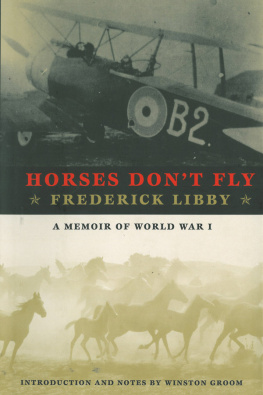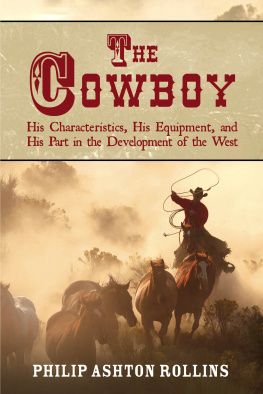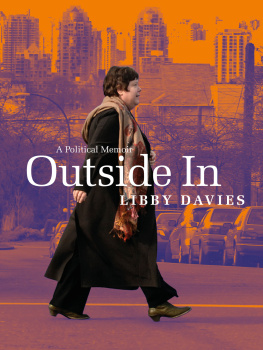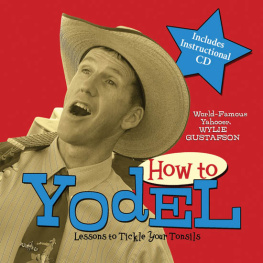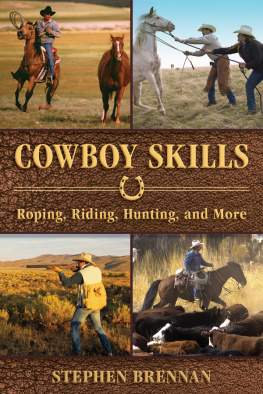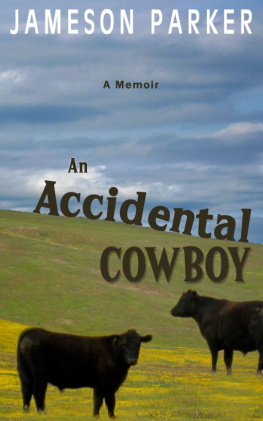Copyright 2000, 2011 by Sally Ann Marsh
Introduction copyright 2000, 2011 by Winston Groom
All Rights Reserved. No part of this book may be reproduced in any manner without the express written consent of the publisher, except in the case of brief excerpts in critical reviews or articles. All inquiries should be addressed to Arcade Publishing, 307 West 36th Street, 11th Floor, New York, NY 10018.
Arcade Publishing books may be purchased in bulk at special discounts for sales promotion, corporate gifts, fund-raising, or educational purposes. Special editions can also be created to specifications. For details, contact the Special Sales Department, Arcade Publishing, 307 West 36th Street, 11th Floor, New York, NY 10018 or .
Arcade Publishing is a registered trademark of Skyhorse Publishing, Inc., a Delaware corporation.
Visit our website at www.arcadepub.com.
10 9 8 7 6 5 4 3 2 1
Library of Congress Cataloging-in-Publication Data is available on file.
ISBN: 978-1-61145-449-9
In Flanders Fields
In Flanders fields the poppies blow
Between the crosses, row on row,
That mark our place; and in the sky
The larks, still bravely singing, fly
Scarce heard amid the guns below.
We are the Dead. Short days ago
We lived, felt dawn, saw sunset glow,
Loved and were loved, and now we lie
In Flanders fields.
Take up our quarrel with the foe:
To you from failing hands we throw
The torch; be yours to hold it high.
If ye break faith with us who die
We shall not sleep, though poppies grow
In Flanders fields.
John McCrae
Introduction
EVERY SO OFTEN AN UNDISCOVERED MANUSCRIPT WILL TURN UP that gives delight to the reader-historian. Such is certainly the case with Horses Dont Fly, Frederick Libbys fascinating memoir of his early life, growing up on a western ranch, turning into a first-rate cowboy, and finally becoming an ace aviator in World War I with the Royal Flying Corps.
In self-effacing, utterly charming prose, Libby tells a straightforward story of being raised by his father and relatives after the death of his mother when he was four. He was born in 1892 in a small town on the Platte River in the Platte Valley of Colorado. Those were the last years of the Old West, and Libbys vivid descriptions of it evoke the tones of Mark Twains Huckleberry Finn. He got into the usual boyhood trouble, fights, pranks, screw-ups, but from the time he was able to sit in the saddle it was apparent Frederick Libby was going to be one of the finest horsemen in the country. As a teenager his travels took him on the ranges, from Mexico to Arizona to the plains of Colorado where he spent an entire winter trapped alone in a tiny sod hut while one of the great blizzards in weather history killed thousands of cattle around him.
After that experience it was his passionate dream to go to Tahiti, but he never made it. He and a friend traveled to the Pacific Coast and worked their way northward until they found themselves in Calgary, Alberta, just as the First World War broke out. At the age of twenty-two he enlisted in the Canadian army, and was trained as a truck driver before shipping out to France and the pitiless fighting on the Western Front. Soon he discovered that the British Royal Flying Corps was looking for observers to fly in their primitive two-seater fighter planes. An observer, in their parlance, was actually a machine gunner, and, his first day in the air and second time firing a machine gun, Libby downed a German plane. He was soon commissioned an officer and not long afterward was made a pilot. Captain Libby quickly distinguished himself and was ultimately decorated with the Military Cross by the king of England at Buckingham Palace, a rare honor indeed, especially for an American. With delightful insight, Libby captures the panorama of the war years, the battles in the air, life in London on leave, the loss of friends, and his triumphant return to America where his tattered American flag streamers were auctioned off at Carnegie Hall before a crowd of thousands for a staggering sum at a Liberty Loan drive.
What is so striking about this story is that, despite Libbys persistent understatement of his own achievements, he was the real thing; every piece of the tale squares with the record, including his being officially credited with shooting down fourteen German airplanes, and by some accounts twenty-four, ten as an observer and fourteen as a pilot. Horses Dont Fly is not only an important piece of previously unpublished history, it is a gripping and uplifting story to read.
Winston Groom
Preface
After much persuasion by my friends, I have written this book, covering the first twenty-six years of my life. Horses Dont Fly is in no way fiction. The things recorded here are events that happened during that period of time and are noted down from memory in the sequence in which they occurred. The book is written from my heart. All events are true and described to the best of my ability and memory as to time and place. My sincere wish is that those who read these pages will enjoy them as much as I did in the writing.
Captain Frederick Libby, M. C.
Sunrise
I began life with an awful tragedy. Mother left us shortly before my fourth birthday. Where she had gone or for how long, no one told me and I didnt know. There was a house full of people, some patting me on the head saying What a big man. But I wasnt. This was in 1896. I was only a little boy.
There were strange women trying to hold me on their laps with no success. I was conscious of something wrong. Just what, I was too young to understand.
The fact that Mother had died of quick consumption came to me in the days that followed, sort of piecemeal. Someone seeing me for the first time would remark, Why, he looks just like his mother. Then I remember hearing Father say, When a boy loses his mother he has lost everything, because it is the mother that keeps a family together and makes a home. It finally dawned on me that Mama was gone forever. While this was terrible for me, it must have been doubly hard for Father. Mothers death left only four of us, Father, my sister Minnie, Brother Bud and myself. Minnie, who was thirteen years older than I, was sent east to live with an aunt, leaving the three of us together.
Thank God for Father. He turned down all the aunts and uncles who were bent on taking me to raise, saying we would fight it out together, and when they insisted that I needed a woman to look after me, I was so young, Father replied, I will take care of that. And he did. Coming to live with us and take care of everyone was Sally, a colored lady. To me, she was an angel. She looked after me, baked cookies, cakes, fresh bread, and right or wrong was always on my side. This Father pretended was wrong, but he liked it very much, because he was keeping the three of us together and could give the back of his hand to all the doubting aunts and uncles.

